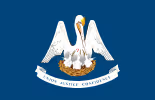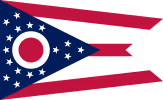Top-Rated Debt Collection Agency in Maryland
Efficient and Trustworthy Debt Collection in Maryland - No Upfront Fees, Pay Only for Results. Schedule a FREE Consultation or Submit Your Claim Today.

Experience Hassle-free Debt Recovery in Maryland with Debitura, Your Trusted Partner in Successful Collections
Experience hassle-free debt recovery in Maryland with Debitura, your trusted partner. As a leading Debt Collection Agency in Maryland, we extend an array of services including account receivables management, debt collection notices, pre-legal and legal debt collection, and enforcement court proceedings. We take immense pride in our highly-skilled team that has an impressive understanding of Maryland's debt collection laws, assuring effective management of your outstanding debts. With Debitura, you can expect prompt and successful collection of your receivables, saving you from financial stress and complications. Count on us for your successful debt recovery needs in Maryland.

Comprehensive debt recovery solutions for Maryland businesses, from A-Z.

Data-guided, personalized debt recovery in Maryland

Partnering with 500+ global experts in international debt collection.

87% success rate in debt recovery across Maryland.
Key facts
- Debt Collection Laws: Maryland's debt collection is regulated by both federal and state laws, including the FDCPA and MCDCA.
- Statute of Limitations: In Maryland, the statute of limitations for written and oral contracts, injury cases, and property damage is 3 years.
- Interest Rates: The legal maximum interest rate in Maryland is 6%, but can be 8% under a written contract.
- Late Payment Fees: Creditors in Maryland can charge a maximum late fee of 5% of the overdue balance per month.
- Wage Garnishment: In Maryland, the amount exempt from wage garnishment is the greater of 75% of disposable wages, or $145 times the number of weeks wages were earned.
- Small Claims Limit: The small claims limit in Maryland is $5,000, and cases can be filed in the District Court's Small Claims Docket.
This guide is not legal advice and laws/rules may change; consult a qualified professional for personalized assistance. Use at your own risk.
Introduction to Debt Collection In Maryland
Debt collection is a significant aspect of financial management that involves the pursuit of outstanding debts owed by individuals or businesses, also known as debtors. In Maryland, as in the rest of the United States, this process involves three key actors: the debtor, the creditor, and the collection agency.
A debtor is an individual or business entity that owes money to a creditor. The creditor, in contrast, is the entity to which the debt is owed. The creditor could be a person, corporation, government body or any other entity that extends credit, expecting a return on the principal amount along with interest or finance charges. When a debtor fails to meet the agreed repayment terms, a creditor may seek the services of a collection agency to recover the debt.
Collection agencies are entities that specialize in pursuing unpaid debts. They're typically contracted by the creditor to retrieve the funds, either for a fee or for a percentage of the total amount owed. Collection agencies have the resources and tools to streamline the collection process, ensuring a higher success rate than individual creditors might achieve.
Key Stages in Debt Collection
There are three key stages in debt collection: pre-legal, legal, and debt enforcement. The pre-legal stage involves initial attempts to contact the debtor and negotiate repayment. This stage includes using reminders, setting up a payment plan, and informing the debtor of the potential consequences of non-payment. These attempts may be done by the creditor or by the collection agency on their behalf.
If these attempts fail, the process may move to the legal stage. The creditor, or the collection agency acting on their behalf, may file a lawsuit against the debtor. This legal action aims to obtain a judgment from the court that legally obligates the debtor to repay the debt.
If a court judgement is issued and the debtor still fails to pay, the process enters the debt enforcement stage. The ways this stage will unfold varies depending on the jurisdiction. In Maryland, for example, debt enforcement could involve wage garnishment, bank account levy, or property lien. Each of these enforcement actions has its own laws and regulations, which will be covered in detail in the subsequent sections of this guide.
Debt Collection Laws In Maryland
The federal debt collection laws, such as the Fair Debt Collection Practices Act (FDCPA), the Fair Credit Reporting Act (FCRA), and the Telephone Consumer Protection Act, play a significant role in dictating how collection agencies operate. They outline how these agencies can impact credit ratings and govern the manner in which they contact debtors. These laws, enforced by the Consumer Financial Protection Bureau and the Federal Trade Commission, aim to protect consumers from unfair practices.
The principal provisions of the FDCPA aim to prevent debt collectors from employing abusive or deceitful tactics when attempting to reclaim a debt. This includes forbidding the use of false pretenses such as claiming involvement of government agencies, courts, or lawyers which is not true. Furthermore, there are restrictions on the time frame in which debt collectors can contact the debtor, most typically being forbidden to call before 8:00 A.M or after 9:00 P.M.
Simultaneously, state laws also offer protection to consumers. In Maryland, the Maryland Consumer Debt Collection Act (MCDCA) presents an additional safeguard to consumers beyond the federal stipulations.
Maryland Consumer Debt Collection Act (MCDCA)
The MCDCA encompasses not only debt collectors but also creditors, offering a wider scope in comparison to the FDCPA, which primarily covers debt collectors. The MCDCA further reinforces protection, outlining that debt collectors and creditors cannot make threats, use abusive language or contact your employer about your debt unless a court judgment has been issued against you. Additionally, they are prohibited from disclosing your debt to your friends, relatives, or neighbors without specific conditions being met.
In the circumstance of you wishing for collectors to cease their contact, a written notification should suffice for federal debt collectors under the FDCPA. In contrast, while creditors might choose to respect your wishes, they are under no legal obligation not to contact you. Please be aware, cessation of contact does not prevent them from filing a lawsuit against you.
Should you feel harassed or targeted by illegal practices, you are entitled to submit a complaint. This can be done by approaching the Maryland Collection Agency Licensing Board, Maryland Department of Labor, Licensing and Regulation for debt collectors, or in the case of creditors, it can be lodged with the Consumer Protection Division of the Maryland Attorney General's Office. Federal complaints can also be made to the Federal Trade Commission (FTC) and the Consumer Financial Protection Bureau (CFPB).
Disputing a Debt
If a debt is disputed or you believe it to be falsely attributed to you, you can draft a letter to the debt collector stating your argument. Upon receipt, the debt collector is required to either offer proof supporting their claim or cease communicating with you until such proof is presented.
In closing, the laws governing debt collection in Maryland stem from both federal and state legislation. FDCPA and MCDCA are cornerstones in providing consumer protection by prohibiting misuse and abuse by debt collectors. These include limitations on communication tactics, times, and places, forbidding deceptive practices, and mitigation of undue stress to the debtor. If you find yourself victim to such malpractices, necessary steps can be taken for your protection and recourse.
Risk Free Debt Collection
Upload your claim and get started with our 100% no-cure-no-pay collection solution.
The Debt Collection Process In Maryland
The process of debt collection in Maryland can feel complicated, but understanding the steps involved can help provide clarity. Through a collection of laws and regulations both on a state and federal level such as the Fair Debt Collection Practices Act (FDCPA) and the Maryland Collection Debt Act (MCDCA), the process of collecting unpaid debts must follow strict rules.
In Maryland, the timeline of the process and the specific steps taken depend on the amount of the debt, the nature of the debt, and the response of the debtor. Nevertheless, five primary steps are common in most cases, which are discussed below.
It's important to note that this is a general outline and the circumstances surrounding individual cases can vary greatly. Businesses and individuals should consult with professionals for advice tailored to their specific situation.
Evaluating the Case
The initiation of a debt collection case begins with an evaluation. The creditor will determine whether the case is within the statute of limitations for written and oral contracts, injury cases, and property damage, which is 3 years in Maryland.
During this stage, the creditor will also confirm the legitimacy of the claim, the sum owed, and the debtor's ability to pay. The purpose of this evaluation is to ensure the claim is enforceable and worthwhile pursuing.
If the debt falls within the statute of limitations and the debtor has the financial capacity to repay, the creditor progresses to the next step of the process.
Pre-Legal / Amicable Phase
Before taking any legal actions, creditors commonly attempt to recover the debt through communication with the debtor. This amicable phase involves reaching out via phone or mail to inform the debtor about the outstanding balance and discuss potential repayment plans.
This phase supports a resolution without involving cumbersome legal routes. It provides an opportunity for the debtor to settle the debt or arrange a payment plan before the issue escalates to legal action, which could potentially impact their credit score.
If unsuccessful, the creditor will then consider taking legal action.
Evaluation of the Case and Legal Considerations
A secondary evaluation will be conducted before proceeding with legal action. Here, the creditor has to decide if the debt is suitable for the small claims court. The upper limit of claims in Maryland's small claims court is $5,000.
Should the case exceed this amount, or if the small claims court is deemed inappropriate, the creditor will usually retain a lawyer to file a lawsuit in the District Court.
This stage involves a thorough examination of the case from a legal standpoint. It requires a clear understanding of state laws governing debt collection, such as capped interest rates and permissible late fees.
Legal Debt Collection Steps
Upon deciding to proceed with court action, a lawyer will typically take charge, filing a summons and complaint to the District Court. If the judgment is in favor of the creditor, the court recruits an enforcement officer or a lawyer to execute the judgment.
This can involve actions such as selling assets owned by the debtor or requisitioning a portion of their income where permissible under Maryland law. In Maryland, the greater of 75% of disposable wages or the figure resulting from $145 times the number of weeks wages were earned, is exempt from garnishment.
The legal action taken during this phase ultimately depends on the nature and amount of the debt, as well as the debtor’s circumstances.
Enforcement of Judgment
Once the court has made a judgment, enforcing it is the final step in the process. This can involve a range of strategies, such as wage garnishment, property lien, and even bank account levies.
In Maryland, a stringent set of rules governs wage garnishment to protect debtors from undue hardship. Moreover, creditors can charge a maximum late fee of 5% of the overdue balance per month and an interest rate of up to 8% under a written contract.
Remember, the legislation surrounding debt collection is complex and varies by state. It's advised to seek professional advice that is tailored to the specific situation.
Statute of Limitations in Maryland
Understanding the concept of 'statutes of limitations' is crucial when dealing with debt collection in Maryland. Statutes of limitations are legal boundaries that set the maximum period which one can wait before filing a lawsuit, depending upon the type of case or claim. These statutes are significant because, after the set period, the claim becomes unenforceable in a court of law.
In the realm of debt collection, the statute of limitations dictates the timeframe within which a creditor can sue a debtor to recover an outstanding debt. Once this timeframe has elapsed, the debt becomes 'time-barred,' meaning the creditor has lost their legal ability to sue for the debt. However, this does not mean that the debtor no longer owes the money; it simply restricts the methods the creditor can use to collect it.
Each state has its own statutes of limitations for various types of debts. In Maryland, the statutes of limitations for different debts are regulated by the Md. Courts & Jud. Proc. Code Ann. § 5-101 et seq.
Written Contracts and Oral Contracts
In Maryland, the period allowed under the statute of limitations for both written and oral contracts is three years from the date of the last activity. This generally includes the last payment or the last charge on the account.
It's important to distinguish between the two types of contracts. A written contract specifies the terms and conditions in writing, while an oral contract refers to agreements that are spoken, but not recorded in a written document.
If the debt arises from a written contract, such as a loan agreement or a credit card, the creditor must file a lawsuit within three years from the date of the last activity. Similarly, if the debt arose from an oral agreement, the creditor has the same three-year timeframe to sue for the debt.
Injury Cases and Property Damage
In cases of personal injury or property damage in Maryland, the statute of limitations is three years. This time limit starts from the date of the accident or injury. If a lawsuit is not filed within this time, the right to sue and recover damages may be lost.
This statute of limitations also applies to cases of damage to property or personal property rights. Maryland law stipulates a period of three years from the date the damage occurred for the property owner to bring about a legal action.
Understanding these timeframes is essential to ensuring your legal rights are preserved. Ignorance to the statute of limitations can result in lost opportunities to recover debts or damages.
Interest Rates on Late Payments in Maryland
Interest rates on late payments are critical in debt collection. They refer to the additional amount charged by the creditor when a debtor fails to pay their debt on time. This rate directly influences the total amount you owe, and as such, understanding it is key to managing and settling your debts effectively.
In Maryland, just like in every other state, there are specific laws that govern the interest rates on late payments. These laws serve to protect consumers from unreasonably high interest rates that could further aggravate their financial situation.
The legal maximum interest rate in Maryland is 6%. However, with a written agreement, this can be increased to 8%. The laws also provide provisions for exceptions such as for mortgage loans and installment contracts for automobiles and other consumer goods.
Interest Rates Laws in Maryland
For a better understanding, let’s delve into the intricacies of the Maryland interest rate laws:
Firstly, if a creditor charges an unlawful interest rate (Usury), the penalty is to forfeit three times the excess of interest and charges collected or $500, whichever is higher. This goes a long way to deter creditors from exploiting debtors through exorbitant interest rates.
Further, interest rates on judgments are typically set at 10%. This means that if a court issues a money judgment on an unpaid debt, the judgment amount can accrue at a 10% interest rate annually. However, the money judgment may carry the original contract interest rate until the originally scheduled maturity date.
Exceptional Cases
In Maryland, exceptions are made for certain types of loans. If a loan is secured by a mortgage, the laws governing the absolute legal interest rates may not apply to it. Other exceptions include unsecured loans secured by something other than savings, installment loans not secured by real property, open-end retail accounts, and installment sales contracts for motor vehicles and other consumer goods.
Clearly, the best strategy for avoiding financial dilemmas related to high-interest credit card debt is to utilize credit cards responsibly and repay outstanding debt promptly. However, if you find yourself in significant credit card debt, Maryland laws work in your favour to provide some protection.
Making sense of the terms of service for credit card agreements and loans can be complex. If you need legal assistance regarding a credit card or interest rate matter, a Maryland consumer protection attorney can provide more precise advice. Taking the time to clearly understand the laws surrounding interest rates on late payments can help debtors make strategic decisions and take informed actions towards handling their debts successfully.
Late Payment Fees in Maryland
Understanding the concept of late payment fees and their relevance in debt collection is essential to both businesses and individuals engaging in financial transactions. The concept of late payment fees revolve around the additional charges a debtor incurs when they do not meet their debt obligations within the stipulated time.
These fees are significant in debt collection because they serve as deterrents against late payment of debts, encouraging debtors to settle their bills within the deadline. They also offer a form of compensation to the creditor for the inconveniences and financial risks associated with late or missed payments.
Moreover, late payment fees contribute to the total amount of debt owed, with accruing fees potentially leading to a snowball effect if the debtor can't keep up with the growing debt. Therefore, being conversant with late fee rules within any jurisdiction is crucial.
Rules Regarding Late Payment Fees in Maryland
For businesses operating in Maryland, the rules governing late payment fees are specifically defined. Among these guidelines is the maximum late fee limit set by the state, which greatly impacts the relationship between creditors and debtors.
In Maryland, the maximum late fee chargeable stands at an unequivocal 5% of the overdue balance every month. This limit serves to protect debtors from predatory practices while also ensuring creditors can recover some costs associated with late payment.
Furthermore, Maryland law does not require businesses to provide a grace period before imposing late fees. While a grace period of seven days is a recommended best practice, this is at the discretion of the individual business and such flexibility can be harnessed to establish a business' unique credit terms.
In essence, these rules provide a defined framework in which businesses and consumers can operate, building trust while ensuring fairness in debt collection practices. Whether you are a creditor intending to impose late fee charges or a debtor seeking to understand your responsibilities, these guidelines are instrumental in fostering responsible financial habits.
Small Claims Procedures in Maryland
Small claims procedures are a legal avenue for those seeking to recover a debt under a certain monetary limit. They provide a more expedited and cost-effective method for resolution as compared to regular court proceedings. In the state of Maryland, these procedures are governed by specific statutes and are managed by the District Court, under the Small Claims Docket.
Several key statutes regulate small claims procedures in Maryland. The major ones include Md. Code Ann. [Cts. & Jud. Proc.] §§ 4-405; 6-403 and Maryland Court Rules, Rules 3-701, 7-104, 7-112. Information about these regulations can be accessed through the official website of the Maryland Courts or the official state statutes website.
The monetary limit for small claims in Maryland is $5,000. This limitation restricts the use of small claims procedures to cases where the debt in question falls within this monetary threshold.
Legal Representation and Procedures
Do you need an attorney to represent you in the small claims court in Maryland? While the answer is no, you are certainly allowed to have one if you prefer. In many cases, particularly where the amount in dispute is toward the higher end of the limit, hiring an attorney can be a prudent decision. They can help navigate the legal nuances and increase chances of a favorable outcome.
The procedure begins with filing a suit in the county where the defendant either resides, is employed, or conducts business. The defendant then has 15 days (60 days if they reside out of state) from receiving the summons to file a 'Notice of Intention to Defend', failing which a default can be declared.
Exceptions are made if the counterclaim exceeds $5,000 or if the defendant demands a jury trial, in which cases, the matter gets transferred to the regular civil docket. While jury trials are disallowed in small claims court, appeals are permissible by either party within 30 days from the entry of judgment or order.
Evictions and Further Aspects
In addition to monetary claims, Small Claims Courts in Maryland also entertain eviction cases, provided the rent claimed does not exceed $5,000. Prospective litigants must review the respective district court procedures for housing cases beforehand to gain a clearer understanding of their rights and obligations.
The courts employ a variety of methods for service of process, including sheriff, constable or disinterested adult, personally or by certified mail.
Understanding the ins and outs of small claims procedures in Maryland is essential for those who believe they are owed money. This knowledge will empower litigants to make informed decisions that directly affect both the cost and outcome of their legal journey.
Wage Garnishment in Maryland
Wage garnishment is a common method used by creditors to recoup debt. This legal action allows a creditor to directly seize a portion of a debtor's wages from their employer until the debt is fully paid. Available in all US states, including Maryland, wage garnishment is typically the last resort for creditors, used when all other methods for recovering the debt have failed.
In Maryland, specific rules and restrictions govern this process to provide a fair balance between the creditor's right to repayment and the debtor's need to maintain sufficient income for self-support. These rules adhere to both state and federal law, providing certain protections for debtors against excessive wage garnishments.
Understanding how wage garnishment works in Maryland is crucial for both debtors and creditors. For debtors, knowledge of the process can assist in financial planning and knowing their rights if their wage is garnished. On the other hand, creditors must adhere to these rules in their debt recovery process, or they risk legal repercussions.
Maryland's Wage Garnishment Specifics
Maryland law defines disposable wages as what remains after mandatory deductions required by law coupled with medical insurance payments. These deductions can include income tax, social security tax, and state employee retirement deductions. Notably, voluntary deductions like union dues, pension contributions, and health insurance premiums are not considered in calculating disposable wages.
The state of Maryland also provides an exemption to safeguard debtors from extreme financial hardship. The Maryland wage garnishment laws permit the greater of two calculations: 75% of disposable earnings, or 30 times the federal minimum hourly wage per workweek. This ensures that the debtor retains a minimum income, regardless of the wage garnishment order.
These rules assure a level of protection for the person in debt while still allowing creditors the ability to collect the money owed to them. The aim behind these specificities around wage garnishment in Maryland is to strike a fair balance between the repayment requirements of creditors and the living necessities of debtors.
.webp)
.png)
.avif)
.avif)
.avif)
.avif)
.avif)
.avif)
.avif)

.avif)

.avif)






.svg.avif)




.avif)
.avif)

.avif)
.avif)



.avif)



.svg.avif)

.avif)

.avif)
.avif)
.avif)
.avif)
.avif)
.avif)
.avif)
.avif)
.avif)
.avif)
.avif)
.svg%20(1).avif)
.svg)

